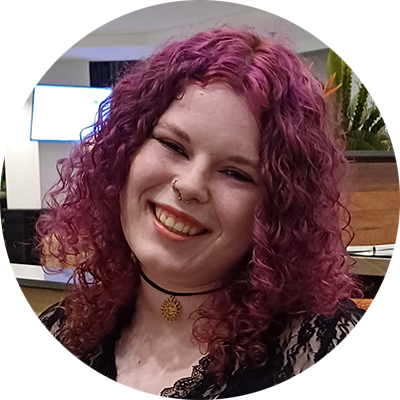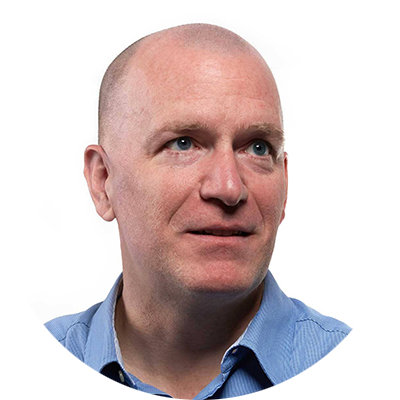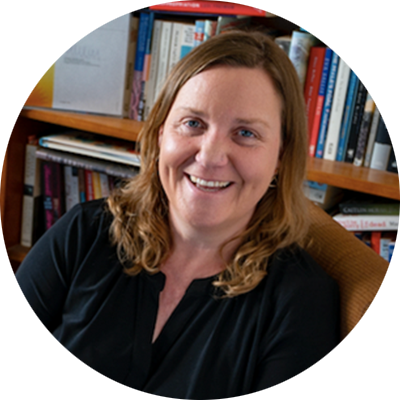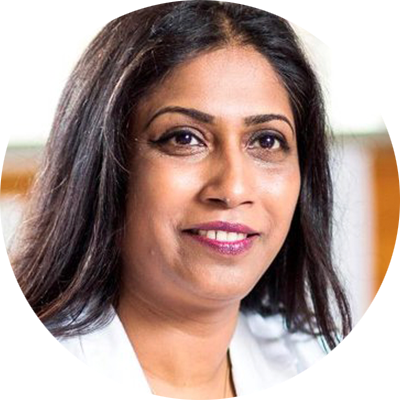Entry requirements
Key information
overall
overall
* Some course components may require attendance at multiple campuses (Bedford Park, City Campus, or Tonsley).
* Some Science majors require specific first-year topics to progress (e.g. CHEM1011 Chemistry 1B for Chemistry; PHYS1101 and PHYS1102 for Physics).
Note: Part-time equivalent study options are not available for international students.
Discover both sides of knowledge
The Bachelor of Arts and Science lets you explore your curiosity across two worlds. You’ll pair an arts major - from philosophy to visual arts - with a science major such as biology, nuclear engineering or physics. This degree is designed for thinkers who want to understand people and the planet, ideas and evidence. You’ll develop powerful analytical, communication and cross-disciplinary skills that prepare you for diverse careers in policy, education, research, and beyond.
Ranked #1 in SA
in Humanities, Culture & Social Sciences for full-time employment and learning resources.
(The Good Universities Guide 2025 (undergraduate), public SA-founded universities only)
Ranked in the top 2%
of the universities in the world
The World University Rankings 2024 as a percentage of the total number of universities in the world according to the International Association of Universities
No.1 in SA
in Sciences for learning resources, skills development, student support, teaching quality and graduate salary
The Good Universities Guide 2026 (undergraduate), public SA-founded universities only
Creative minds with scientific skills stand out
Graduates with expertise across arts and science are highly employable. This degree builds a blend of creative, critical and analytical thinking that’s valued in government, education, communication, research and consultancy roles.
Salary
$105K
typical salary in Australia
Policy Analyst
Policy analysts bring evidence and insight together to solve complex problems. They research, interpret and evaluate data to inform decisions on issues such as climate, education, energy or social reform.
Graduates who combine arts and science can bridge communication gaps between technical experts and decision-makers - a vital skill in government and industry
Science Communicator
Science communicators make research accessible to the public, helping people understand how science shapes the world around them. They work in universities, government, media, or museums, translating complex ideas into engaging stories and visuals.
This is an ideal career for students who pair a science major with creative writing, journalism, or visual arts.
Salary
$90K
typical salary in Australia
Sources: au.talent.com, 2025 | Seek Australia, 2025
Environmental Consultant
Applies science and policy knowledge to help organisations reduce environmental impact, manage resources and meet sustainability goals.
Ideal for students combining science with political science or geography.
Study: Major in Sustainability or Political Science
Education Officer
Creates and delivers educational programs in schools, museums and community organisations.
Great for graduates who mix science with communication or creative arts.
Study: Major in Biology or Creative Writing
Data Analyst
Analyses and visualises data to uncover trends that guide decisions in government, business and research. Perfect for students blending maths, psychology or communication.
Study: Major in Mathematics or Data Science
Community Engagement Officer
Connects organisations with communities through education, sustainability and social projects.
Suits students combining sociology, communication or environmental science.
Study: Major in Sociology or Environmental Science
What will you study in this unique degree?
This flexible degree allows you to build depth in two fields - one arts major and one science major - while adding elective and interdisciplinary topics that connect them. You’ll learn how creativity and evidence work together to shape solutions for real-world challenges.
- Year 1
- Year 2
- Year 3
GENERAL
In your first year, you'll start broad - explore foundational topics in both arts and science.
Year 1 - Discover Both Worlds
Your first year might include the following topics. For exact topic information, visit the course Handbook.
- Arts Major - 2 topics from a major like Applied Linguistics, Ancient Studies, Archaeology, Creative Writing, Critical Indigenous Studies, Digital Heritage, Drama, English, Gender Studies, Languages, and more (full list below)
- Science Major - 2 topics from a major like Chemistry, Maths, Nuclear Engineering, Physics, Sustainability, Wireless Systems Security or Molecular Biology
- One of either Academic and Professional Communication, or Communicating STEM
- One of either Algebra and Functions, Mathematics 1A, or Biostatistics
- 2 electives
- Example combinations:
- English + Physics = Science Communication
- Politics + Sustainability = Environmental Policy
- Visual Arts + Biology = Nature Illustration and Design
GENERAL
In your second year, you'll deepen your understanding and begin to connect ideas across fields by continuing your majors. Follow your curiosity by choosing an elective across the Arts or Science.
Year 2 - Build Skills and Connections
For exact topic information, visit the course Handbook.
- Continue second-year topics from your Arts and Science majors
- 2 electives from areas such as coding, design or environmental studies
GENERAL
In your third year, you'll bring your knowledge together through projects, applied study or fieldwork.
Year 3 - Apply, Integrate, and Communicate
Your third year might include the following topics. For exact topic information, visit the course Handbook.
- Advanced topics in both of your Arts and Science majors
- Choose a professional or capstone option from Science Connect, Research Project in Science, or a 6-week Industry-based Practicum
- 1 elective
Customise your degree.
As part of your educational journey, you'll choose a Major from both Arts and Science areas that challenge your curiosity.
MAJORS
Creative Arts
- Creative Writing
- Drama
- Visual Arts
MAJORS
Humanities &
Social Sciences
- Ancient Studies
- Archaeology
- Critical Indigenous Studies
- Digital Heritage
- English
- Gender Studies
- Geography and Environmental Studies
- History
- Medieval and Early Modern Studies
- Philosophy
- Political Sciences
- Sociology
MAJORS
Languages
- Applied Linguistics
- French (Beginners or Continuers)
- Indonesian (Beginners or Continuers)
- Italian (Beginners or Continuers)
- Spanish (Beginners or Continuers)
MAJOR
Chemistry
Explore the central science linking biology, physics, engineering and the environment. Gain hands-on lab skills, study organic, inorganic and analytical chemistry, and graduate ready for careers in pharmaceuticals, food and wine, mining, sustainability, and forensics. Accredited by the Royal Australian Chemical Institute.
MAJOR

Mathematics
Build strong analytical, modelling and problem-solving skills through calculus, algebra, statistics and numerical methods. Apply mathematics to science, engineering, finance, health and technology. Prepare for careers in data analytics, actuarial science, research, and financial modelling, or use it as a foundation for postgraduate study.
MAJOR
Molecular Biology
Study DNA, RNA and proteins to understand the molecular basis of life. Combine genetics, microbiology, genomics and biochemistry with lab-based learning. Graduate prepared for careers in biomedical research, diagnostics, biotechnology, pharmaceuticals and public health, or progress to honours, medicine, or postgraduate molecular biosciences.
MAJOR
Wireless Systems Security
Study electromagnetic waves, antennas, signal processing, GPS, radar and satellite systems. Gain technical and design skills for careers in telecommunications, defence, aerospace and transport. With industry-informed learning, this major equips you to innovate in wireless communication and contribute to Australia’s growing space and technology sectors.
MAJOR
Physics
Uncover the laws of nature through quantum mechanics, electromagnetism, thermodynamics, energy systems and nuclear physics. Paired with a mathematics minor, this major develops experimental, analytical and computational skills for careers in research, defence, education, space science, medical physics, renewable energy and technology.
MAJOR
Sustainability
Learn to design and implement sustainable practices across energy, waste, manufacturing and governance. Explore renewable energy systems, Caring for Country, and ESG reporting. Graduates pursue careers as sustainability consultants, engineers, analysts and managers across government, energy, construction, transport, defence, and consulting—shaping a greener and more resilient future.
MAJOR
Nuclear Engineering
(Australian citizens only)
Gain knowledge and skills for nuclear-related engineering roles, including reactors, radiological safety, compliance, manufacturing and commissioning. Explore ethical and environmental considerations while preparing for careers in defence, energy, health and research. Contribute to Australia’s future in nuclear stewardship, submarine programs, and clean energy technologies.
Ranked #1 in SA
in Humanities, Culture & Social Sciences for full-time employment and learning resources.
(The Good Universities Guide 2025 (undergraduate), public SA-founded universities only)
Ranked in the top 2%
of the universities in the world
The World University Rankings 2023 as a percentage of the total number of universities in the world according to the International Association of Universities
No.1 in SA
in Sciences for learning resources, skills development, student support, teaching quality and graduate salary
The Good Universities Guide 2026 (undergraduate), public SA-founded universities only
Discover South Australia.
Where world-class education meets laid-back coastal living. With pristine beaches, acclaimed wineries, and vibrant festivals at your doorstep, South Australia offers an unmatched student experience.
Photo credit: SATC
Get inspired.
Discover more about Flinders University’s Bachelor of Arts and Science.
Bachelor of Arts
Hear from the BA teaching staff.
“My biggest tip to prospective students would be to study something you're passionate about - you will enjoy your study so much more, and you will have the motivation to work towards your dream.”

Keeley Dyer
Bachelor of Arts (Archaeology/Medieval Studies)
“You can study abroad, find internships, make new friends, join social and sporting clubs, and have the flexibility in your learning to still pursue your passions outside of study.”

Will Molloy
Bachelor of Arts
Need support?
International Student Services (ISS) is the first point of contact for international student support. The university also offers everything from cultural, health, and wellbeing services, to academic support.
Campus tours
Take a virtual tour of our campuses, guided by your fellow international students.
FUSA
Flinders University Student Association (FUSA) is the heart of the Flinders Experience. FUSA is where you'll find out about events, club memberships, and extracurricular activities.
Accommodation.
Adelaide has many accommodation options for international students. You can choose to live on campus, at our city accommodation provider The Switch, or in rental accommodation.
Flinders offers a vibrant, fun, supportive uni experience you’ll remember for a lifetime.
Need support?
From cultural, health and wellbeing services, to study and financial support, enrolment advice and more, we’re here to help.
Student clubs
Flinders University Student Association (FUSA) is the heart of the Flinders Experience. FUSA is where you’ll find out about events, club memberships and extracurricular activities.
Campus facilities
Flinders’ campuses are hubs of activity, with retail and food outlets, library spaces, study and chill spaces and more.
Learn from the experts.
Our incredible teaching and professional staff are experts in their fields and well-connected to the industry.

Associate Dean of Learning & Teaching
Professor Ingo Koeper
Ingo is a physical chemist exploring how nanoscale materials interact with biology. His research focuses on model membranes, sensors and drug delivery systems — combining techniques like electrochemical impedance spectroscopy and neutron scattering to investigate how molecules behave at surfaces and interfaces.
Before joining Flinders, Ingo led research in Germany and France on ion channels, biofunctional surfaces and molecular interactions. He now heads the Flinders STEM Academy and is Associate Dean (Learning and Teaching) in the College of Science and Engineering. Ingo is also a multi-award-winning teacher with a strong passion for science communication and student success.

Course Coordinator - Bachelor of Arts
Professor Kate Douglas
Kate teaches into the English major and specialises in life narrative studies. Her work is engaged with the ways in which people tell stories about their lives and the lives of others as well as the literatures and technologies they use to record these life stories.

Professor Maria Parappilly OAM
Maria is an award-winning physicist and nationally recognised leader in physics education. With a PhD in theoretical particle physics and a deep passion for teaching, she creates learning environments that make physics engaging, inclusive and inspiring.
She is the Director of the STEM Enrichment Academy, a national initiative encouraging girls to pursue STEM, and has been honoured with dozens of accolades — including the Medal of the Order of Australia and the Australian Institute of Physics Education Medal. Maria’s leadership spans research, outreach and curriculum development, and she’s a fierce advocate for equity in science. Students benefit from her enthusiasm, clarity and drive to make physics accessible to all.
Let’s get started on your Flinders’ experience.
We know not everyone begins uni the same way, so we offer a variety of pathways into Flinders.
Use the dropdown to tell us a bit about you.
Alternative pathways
UniTEST
If you’re in Year 12, taking the free uniTEST can help boost your chances of getting into Flinders.
Research Project B Pathway
Strong results in your Research Project B subject along with your Year 12 results can be considered for entry.
Year 12 Grades Entry
By using three of your best Year 12 grades, you can also gain a place in your course of choice.
School Recommendation Program
Your school’s recommendation about your academic performance may be considered as part of your admission.
If you started uni but didn't finish, you may be able to gain entry into Flinders with a higher education transfer.
Higher education transfer
If you’re studying at another university, you may be able to transfer to Flinders based on your Yr 12 results, current GPA or other factors.
If you've had TAFE or VET training, you may be able to continue your study with Flinders.
TAFElink
Even if you didn’t finish high school (Year 12), you may be able to study at Flinders through your TAFE/VET qualification.
Dual offer pathways
You may be able to complete a TAFE SA course and have guaranteed entry into Flinders.
Credit transfer
The TAFE/VET stud you’ve already done may be able to be used as credit towards a Flinders’ course.
No ATAR? No worries. If you've got work or life experience, there are pathways into Flinders.
Flinders Foundation Studies
The Foundation Studies Program is free and guarantees entry to a range of degrees.
Skills for Tertiary Admissions Test (STAT)
The STAT is a 2-hour multiple choice test that assesses your abilities.
Year 12 qualifications
If you completed Year 12 more than two years ago you can still use your results to apply.
Concerned about your ATAR? If it doesn't meet the course requirement, or if you don't receive one, we offer alternative pathways to admission. Contact us to discuss your options—we're here to help.
- Entry requirements
- Application options
If you don’t meet our English language entry requirements and need to improve your English language proficiency, you can do so through Flinders University Academy – or our approved English Language Instruction Course for Overseas Students (ELICOS) providers.
This means that you can attend the required English language tuition at approved ELICOS providers and gain direct entry into university without an IELTS or TOEFL test.
If you don’t meet our academic entry requirements, you can still gain entry to Flinders University through Flinders University Academy. With a range of diplomas, foundation and English language courses, students can find a direct pathway into the destination degree of their choice.
How to apply
Select your course.
Check entry requirements.
Check your eligibility for credit.
Obtain certified documents.
Submit your application and documents.
Application options.
Apply online
Follow up our step-by-step guide to help you with your application to study at Flinders.
Find an agent
Our registered education agents around the world understand the university system and will guide you through the application process.
Contact us
Get in touch with our team to discuss your preferences, career options, pathways, and course and entry requirements. We are here to ensure you have everything you need to choose the right degree for you.
Don't meet academic requirements? Don't worry. We'll help you get there.
Preparatory courses
If you lack required English proficiency, improve through Flinders University Academy or approved ELICOS providers for direct university entry without IELTS/TOEFL tests.
Flinders University Academy
If you do not meet entry requirements for your desired degree, Flinders University Academy will provide you with a direct pathway into the destination degree of your choice.
Frequently asked questions.
Over the years, many questions have been asked by students before. For the quickest answers view our frequently asked questions or browse the full list @ Ask Flinders.
Yes - this degree is designed so you can major in both. You’ll graduate with broad knowledge across two disciplines and skills that span creativity and analysis.
No - if you're not sure how to combine your interests, speak to our course advisors - we’ll help you design a degree that fits you.
Yes. In your final year, you can take part in research projects or professional placements through Science Connect or Industry-based Practicum.
Graduates work in government, policy, environmental consulting, communication, data analysis, research, and education - or continue to postgraduate study.
Yes, you can study part-time or full-time.
Yes. This is an in-person degree, based primarily at Flinders’ Bedford Park campus, but some majors or electives may require you to attend the Tonsley or City Campus.
- Applications are completed via SATAC
- Visit: satac.edu.au
The table below shows ATAR and Selection Rank data for students offered a place wholly or partly on the basis of ATAR commencing in Semester 1, 2025. It is limited to applicants that have recently completed secondary education (within the last two years). Data may reflect multiple courses available within a suite of courses.
Notes:
<5 – less than 5 ATAR based offers made
N/A – This course uses additional selection criteria and therefore Selection Rank is not published
| ATAR-based offers only across all offer rounds | ATAR - Excluding adjustment factors | Selection Rank - ATAR plus any adjustment factors |
|---|---|---|
| Highest rank to receive an offer | 95.20 | 99.95 |
| Median rank to receive an offer | 76.17 | 80.42 |
| Lowest rank to receive an offer | 57.75 | 61.00 |
The table below gives an indication of the likely peer cohort for new students in this course. It provides data on students who commenced study in this course in Semester 1, 2025 including those admitted through all offer rounds and international students studying in Australia. Applicant background groupings are based on educational background, not basis of admission. Data may reflect multiple courses available within a suite of courses.
Notes:
<5 – the number of students is less than 5
N/P – Not published: the number is hidden to prevent calculation of numbers in cells with less than 5 students
| Applicant background (Semester 1, 2025) | Number of students | Percentage of all students |
|---|---|---|
| Higher education study (includes a bridging or enabling course) | 44 | 37% |
| Vocational education and training (VET) study | 5 | 4% |
| Work and life experience | <5 | <5 |
| Recent secondary education - Admitted solely on the basis of ATAR (regardless of whether this includes the consideration of adjustment factors such as equity or subject bonus points) | 28 | 24% |
| Recent secondary education - Admitted where both ATAR and additional criteria were considered (e.g. portfolio, audition, extra test) | <5 | <5 |
| Recent secondary education - Admitted on the basis of other criteria only and ATAR was not a factor (e.g. special consideration pathways) | 17 | 14% |
| International Students | 18 | 15% |
| All students | 118 | 100% |
Frequently asked questions.
Get in touch with us to discuss your preferences, career options, pathways and course and entry requirements. We are here to ensure you have everything you need to choose the right degree for you.
The type of documents you will need for your international application depends on what course you are applying for and which country you are a citizen of. Course requirements are stated on each course webpage. Examples of documentation you might expect to provide for your international application include a copy of personal identification, academic transcripts or a resume.
Once you have received your Confirmation of Enrolment (CoE) letter from Flinders University, you should apply for your visa as soon as possible as visa processing times can vary. You will receive your CoE letter after you have applied to study at Flinders, accepted your offer and paid the semester tuition fee.
No. Part-time study is currently not available for international students due to visa conditions.
No. Online study is currently not available for international students due to visa conditions.
If you don’t meet our English language or academic entry requirements, you can still gain entry to Flinders University through our on-campus pathway provider Flinders University Academy. Alternatively, you can improve your English language proficiency through our approved English Language Instruction Course for Overseas Students (ELICOS) providers.
You can apply to study as an international student directly through Flinders University or an authorised agent in your country.
If you are from one of the countries listed here, you are required to apply via an education agent. If you reside onshore in Australia, you will not require an agent even if you are from the countries listed above.
Yes. As a student visa (subclass 500) holder, you and your dependents (family members) can work up to 48 hours a fortnight when your course of study is in session. If you have started a master degree by research or doctoral degree, this rule does not apply to you and working hours are not restricted.
Our dedicated International Student Services (ISS) team provide a range of programs supporting your enrolment, study and social life, as well as a referral service to facilities on campus and within the local community.
![]()
Sturt Rd, Bedford Park
South Australia 5042
South Australia | Northern Territory
Global | Online
CRICOS Provider: 00114A TEQSA Provider ID: PRV12097 TEQSA category: Australian University








